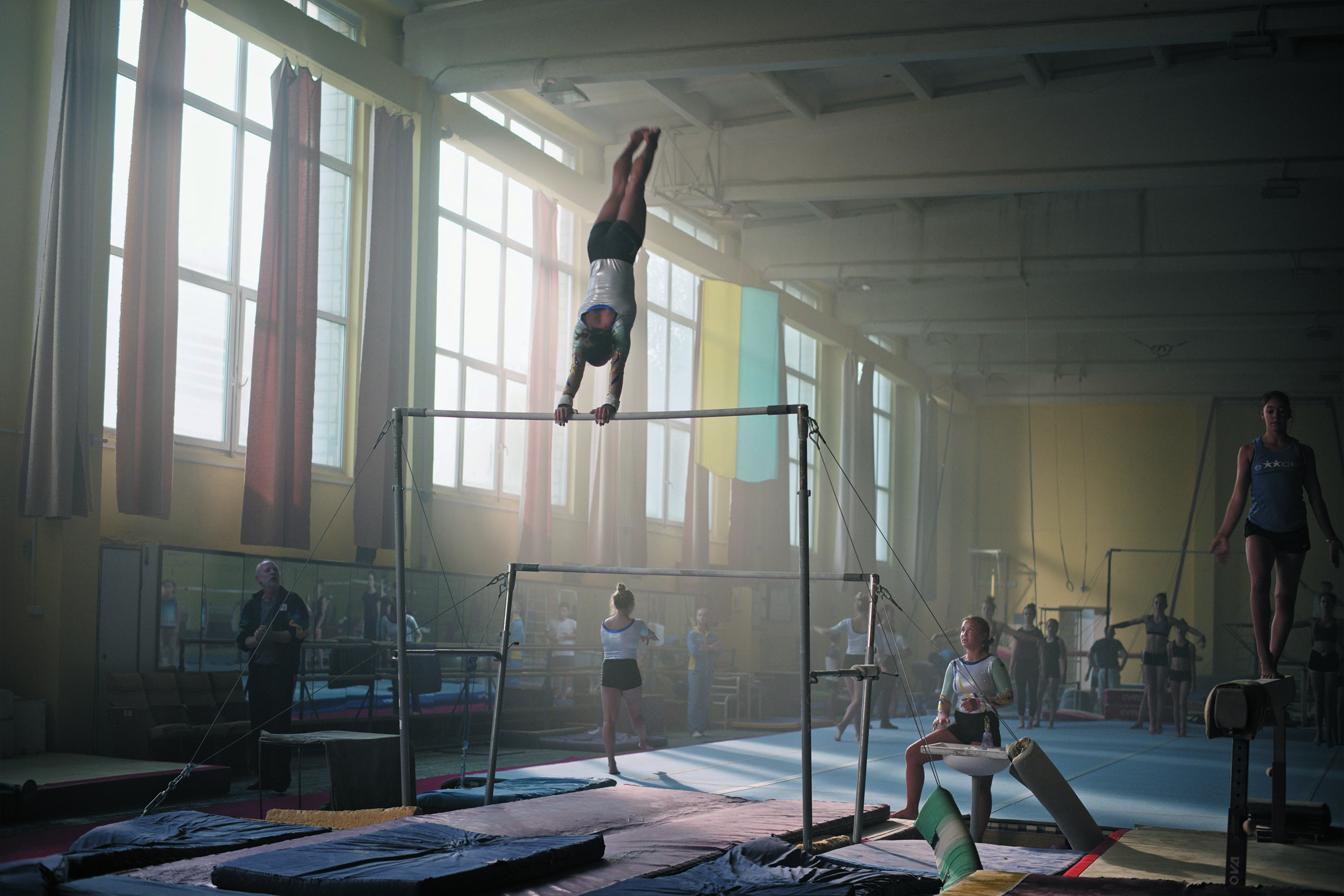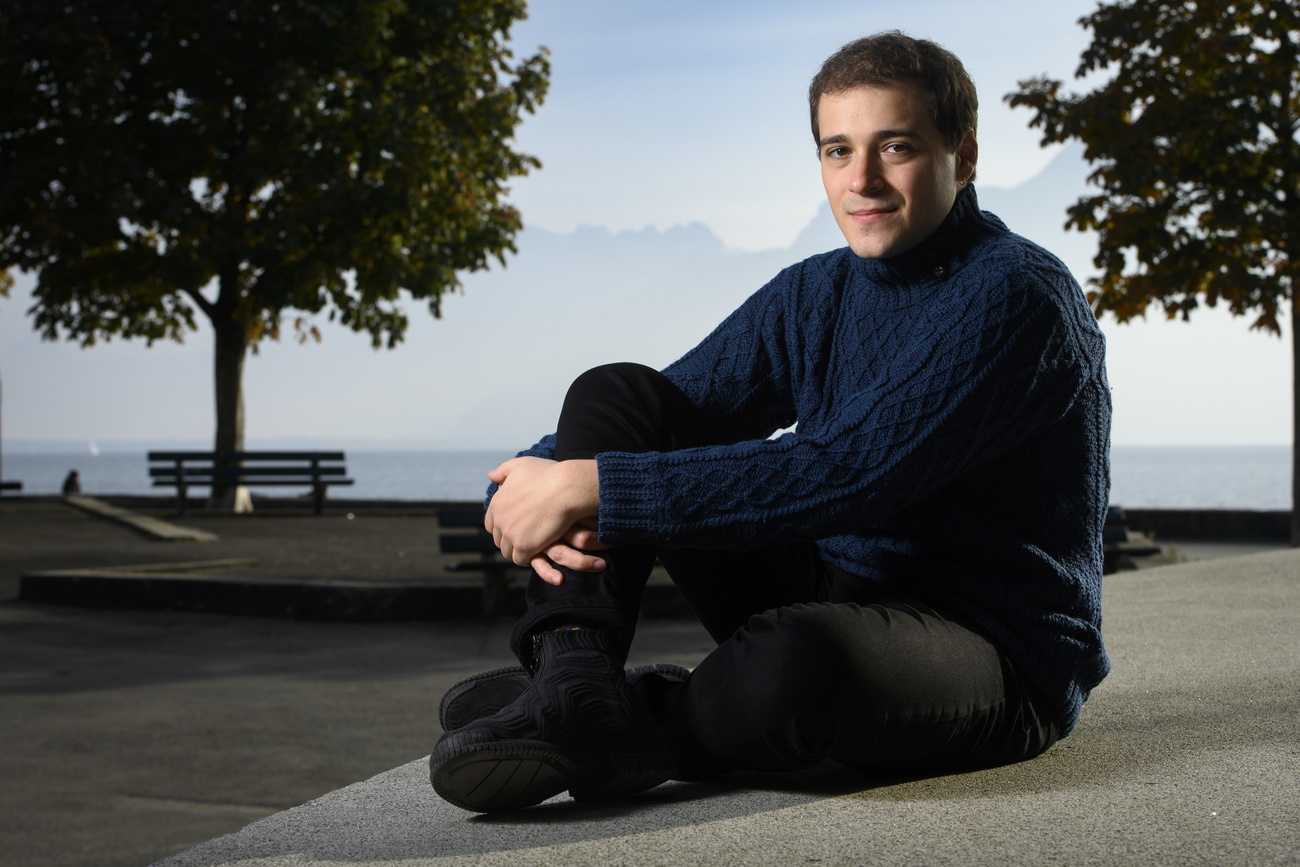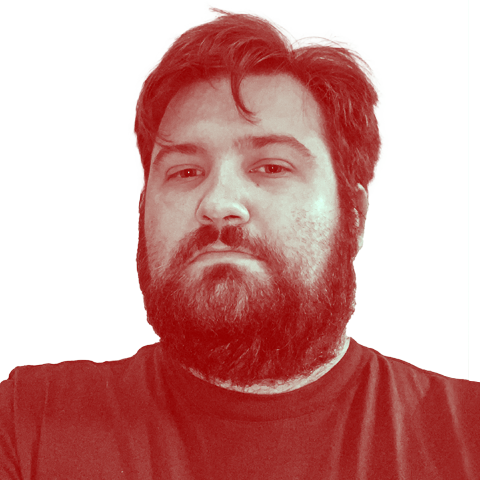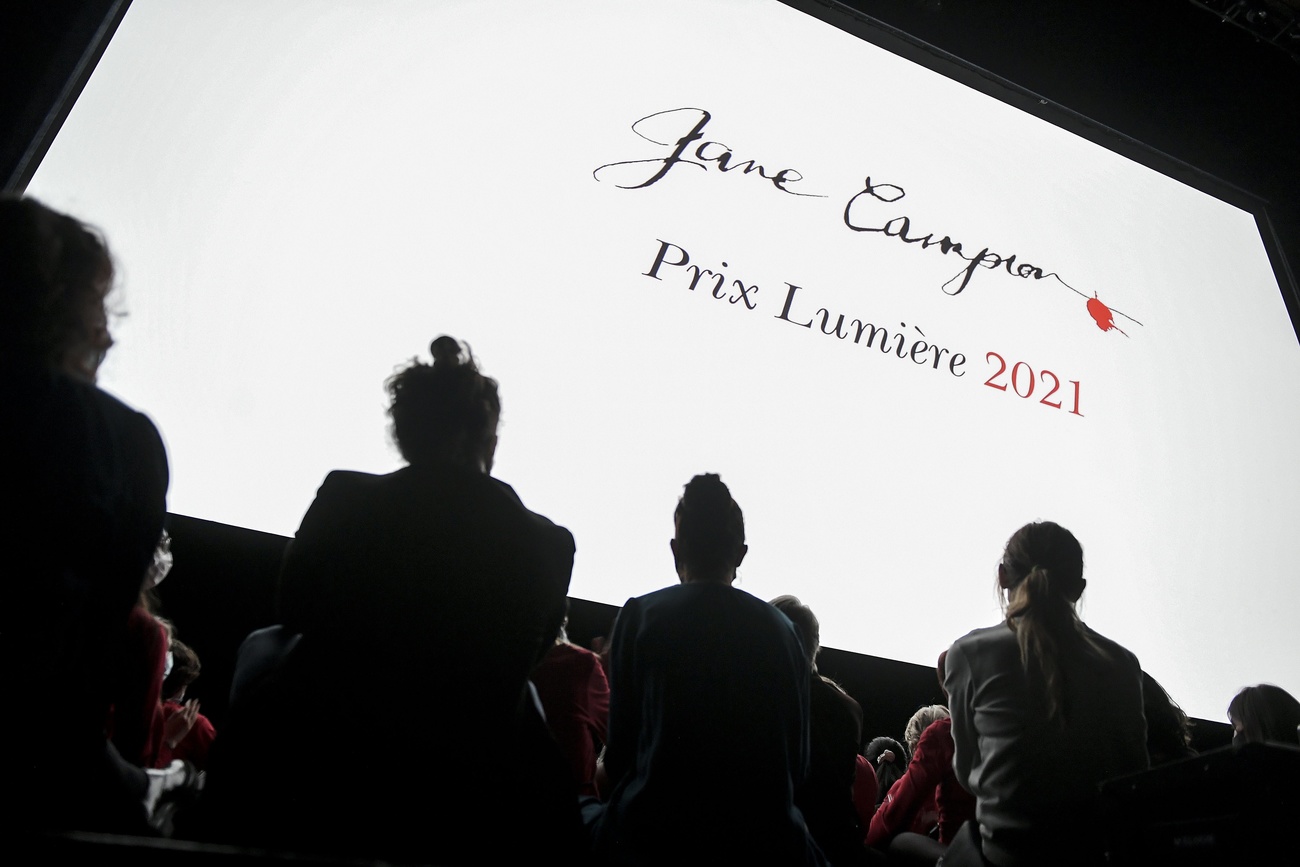Olga, Elie and Oscar: the story of a remarkable Swiss film debut

The young French-born director Elie Grappe discusses the creative process and international success of his debut feature film, Olga, which is playing at the 57th Solothurn Film Festival. It was also Switzerland’s entry for the best international feature film category at the 2022 Oscars.
“Apologies for the delay, I’ve been a bit busy.” As we start our videocall fifteen minutes later than planned, Elie Grappe explains how he’s spending most of his waking hours at his Vevey home, near Lausanne, writing the script for his next feature film.
It is a period piece set in the 1930s, which will reunite him with producer Jean-Marc Fröhle, with whom Grappe made the two films that shot him to international acclaim – the short film Suspendu (Suspended, 2015), shown in over 60 festivals, and his first feature Olga. That’s what we are here to talk about.
Olga celebrated its Swiss-German premiere on January 20, as part of a lineup of eight titles competing for the prestigious Prix de Soleure at the 57th edition of the Solothurn Film Festival, which runs from January 19-26.
In a way, this is the logical conclusion of a journey that began in August 2020 in a different part of the country. Due to the pandemic, the Locarno Film Festival jettisoned its usual format and chose to put the spotlight on films whose production had been upended by the health crisis.
Olga, which had two weeks of shooting left when the first lockdown began, was one of the ten Swiss projects selected in a special competition for the Locarno festival, called “The Films After Tomorrow”.
It is now one of the five films from that selection that will play at Solothurn in the coming days.

Ukrainian drama in Switzerland
Set against the backdrop of the Euromaidan protests in Ukraine in late 2013, Olga is the story of a 15-year-old gymnast struggling with her dual identity: she is both Swiss and Ukrainian. As a gymnast, she is training as a Swiss athlete [thanks to her absent father’s nationality], while her journalist mother is reporting on the ground in Kiev and facing daily dangers. Striving for authenticity, Grappe cast real gymnasts in the main roles.
When filming was suspended in March 2020, the young director had to rethink his approach.
On the upside, the film had a limited main cast and was largely set inside a handful of buildings, thus the premise was already partially pandemic-friendly.
Other aspects, however, were beyond the production’s control, as Grappe explains: “The film takes place in winter, because of the real Euromaidan context, so completing the shoot in the summer months was tricky. And sadly, one person we had cast, who was supposed to be in the second half of the film, passed away due to Covid-19.”
Flashes in Cannes
Flashforward to July 2021. Olga, by then five years in the making from when the director started researching the topic, was finally unveiled at the Cannes Film Festival, as part of the Critics’ Week section.
This was a thrilling experience, but also a slightly unreal one. “We finished the sound mix five days before the premiere, so it still didn’t feel quite real at first,” says Grappe. “It wasn’t my first time in Cannes, but I’d never had my own work to present before. And it was amazing to see the theatres there running at full capacity.”
Less than two months after the world premiere, Olga was chosen as Switzerland’s entry for the Best International Feature Film category at the Oscars but failed to make the shortlist that precedes the formal nomination. The last Swiss film to make it all the way to the ceremony was Xavier Koller’s Journey of Hope, which wound up winning the prize in 1991.
This may have affected the chances of finding an American distributor [the search is still ongoing at the time of writing], but the Oscar campaign did produce results. Grappe adds: “I travelled to the United States twice after we were chosen, and I met with a talent agency, CAA (Creative Artists Agency). This is a big deal not just for my career, but also for other Swiss projects, like a few that Jean-Marc Fröhle is working on that don’t involve me.”
The French connection
It was also a source of personal pride. “I feel validated in terms of being recognised as a Swiss filmmaker, having lived here for 12 years now,” Grappe explains. Born in Lyon in 1994, he relocated to canton Vaud in 2010 and graduated in film studies at the École cantonale d’art de Lausanne (ECAL) in 2015. His graduation short film Suspendu, which serves as a precursor to Olga in how it depicts the human body in an athletic/competitive context, can be viewed on Play SuisseExternal link.
So how does it feel when the French try to claim Olga as their own, as was the case in a recent frontpage story for Le Film FrançaisExternal link magazine?
“They will do that when it suits them, as a co-producing country, but the financing was mostly Swiss. Don’t get me wrong, I have nothing against working in France, but I feel at home here, and I’m thrilled to have my next film financed wholesale in Switzerland,” he says.
As the interview comes to a close, we discuss the stereotype from abroad regarding the lack of a proper identity for Swiss cinema, not least because most films don’t really travel outside their linguistic regions, excluding festivals and digital platforms.
“That is indeed a problem,” says the filmmaker, while conceding that he can’t really speak about it on a personal level. “I’m not in a position to complain, because my film does have a nationwide release.” Having already opened in French- and Italian-speaking regions, Olga is scheduled to play in Swiss-German cinemas from February 24.
As for the national film scene, he thinks any preconceptions from the other side of the border are misguided. This is not just because he is a Frenchman who has chosen to make Switzerland his personal and creative hub.
“Filmmaking in this country is very strong, with very interesting work coming from the younger talents, like Andreas FontanaExternal link or Cyril SchäublinExternal link, for example,” he explains. “We have this great diversity that is quite accessible for a wide audience and also gets support and funding to go to some interesting places, especially documentaries. I love how a supermarket chain like Migros contributes financially to work that is pretty bold and radical with their visual language.”
Grappe has no reason not to be optimistic about the future of the Swiss film industry. And it’s not just because he is a very promising part of it.

In compliance with the JTI standards
More: SWI swissinfo.ch certified by the Journalism Trust Initiative













Join the conversation!